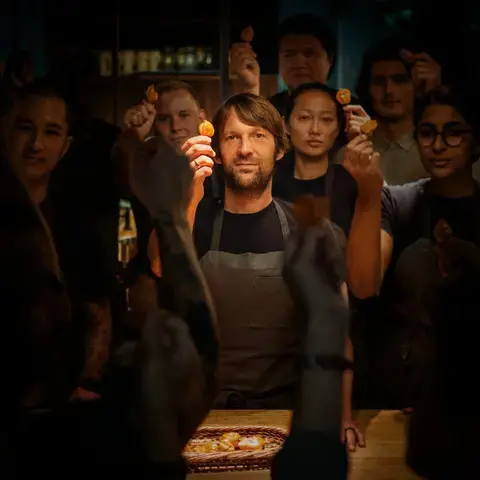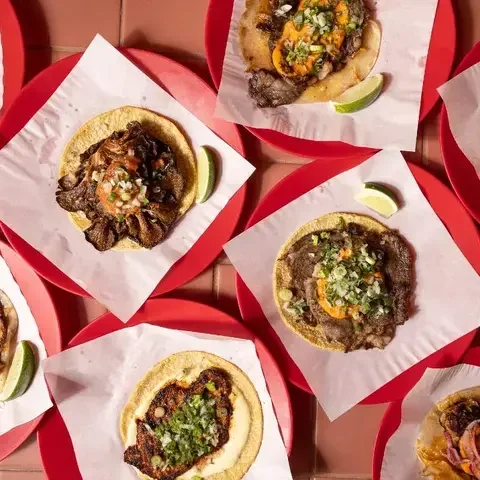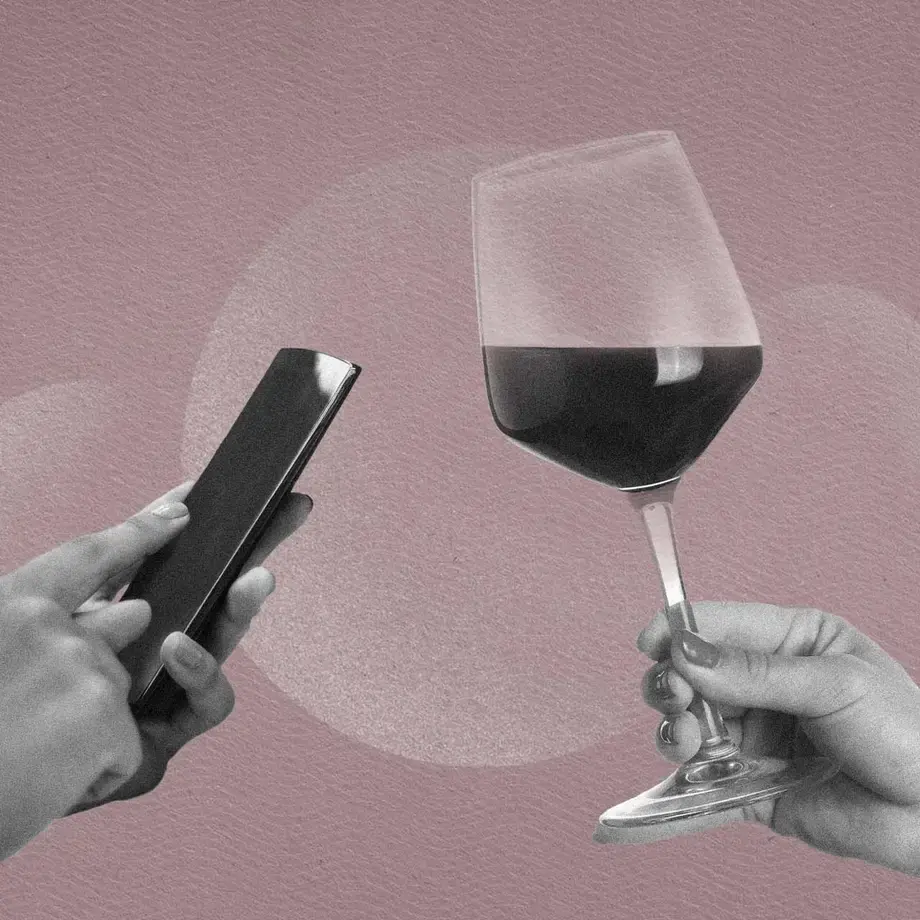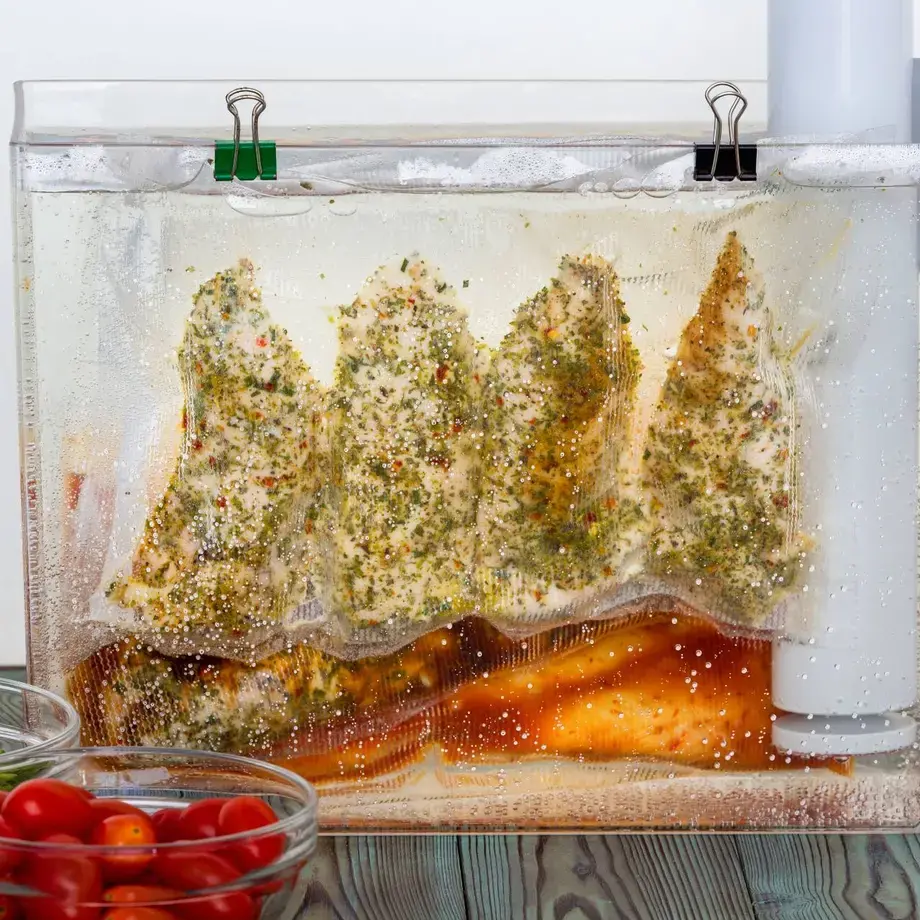You step into a restaurant, and before you pass the foyer to reach the table, a camera scans your face and body and transmits all your ethnographic data to a database. The maître d’ welcomes you, and before you start the meal, he asks you to fill in a sensory form with 30 questions that will generate the dishes you are going to eat that night. There's no menu: the algorithms (and the sensors in the camera) will tell the chef in the kitchen what you feel like eating that night.
Before the first dish, the maître d’ brings virtual reality glasses that allow you to observe artworks displayed on the walls that you weren't allowed to see before — they are NFTs from prominent digital artists that only exist virtually. When you look across the table, your dining partner (who physically stayed at home in Hong Kong) smiles at you, drinking the same cocktail that you now have in your hand. You two chat for a few minutes until the waiter announces the first course has arrived. You can finally can start eating.
Although it seems like a science fiction scene, this restaurant could soon be in operation. The technology is already available. And it will start to become more common in the coming years. There seems little doubt that digitisation will transform the dining scene as we know it, just like the pandemic has accelerated new ways of digitally interacting with food (whether due to social distancing or a lack of trust in physical interaction). A new digital universe is being built while you read these words. To be more precise, a new whole metaverse.
It is still hard to understand what the metaverse really is and how digital dining will finally be reality. What could food look like in a virtual world, and what does it mean for restaurants? At this point, no one really knows. But the interest in the metaverse is leaving no industry untouched — even food brands are trying to benefit from it by inventing virtual reality to interact with their audience, as author Jamie Shackleton writes in a recent report from the consultancy and technology company Wunderman Thompson.
"Opportunistic food brands are racing to file trademarks for virtual goods and services, indicating their intent to make a mark in the metaverse", he says, citing a range of cases, from Burger King and French hypermarket chain Carrefour, to Panera Bread (who filed a trademark application for the “Paneraverse") to Chipotle. The latter teamed up with the gaming platform Roblox to allow customers to roll burritos for fun in the metaverse, and then earn credits they can use on Chipotle's digital platforms.
When it comes to restaurants, projects range from promoting new digital experiences at the table, to cigar groups that can bring together connoisseurs to interact (and smoke) virtually after dinner. In OneRare, billed as the world's first food metaverse, you can visit a virtual restaurant with a menu from a celebrity chef, where the signature dish might be butter chicken or cacio e pepe.
In short, the metaverse is an immersive, collective and hyper-realistic virtual environment that represents a step forward in social interaction. Digitally, there are new ways to sharpen the senses and consume content. It's a way of using the internet through virtual reality, where people can communicate using personalised avatars.
"However, it is important to remember that it is a path that is being paved; we still don't know where it can lead us,” says José Pelaez, digital transformation coordinator at BCC Innovation, at Basque Culinary Center, in Spain. "I say that we are for the metaverse as we were for social media when they were first established. There was a lot of speculation, a promise of interaction between people, and then even companies started creating their profiles. It is only today that we are more aware of their functions — even if new things aren’t in full developed.”
Pelaez is behind the team putting together one of the first-ever dinners that will happen in the metaverse on 18 July. In conjunction with LABe Restaurant, the Crypto Pintxos project aims to connect the worlds of gastronomy and blockchains by staging a digital dining experience, which will select five NFTs to be transformed by real-world chefs into real-world dishes to be cooked and eaten at the dinner. "We want to test how to build and experience the interaction between people and food when a good part of our life is in the digital environment. We look forward to understanding how we can stimulate the sense of sight, of smell in new sensorial ways, but virtually,” Pelaez explains.
In the future, experts claim, the metaverse will transport us to a wholly digital world, and we will be able to use it to meet up with friends, go to a concert, do some shopping and, of course, have dinner, although you can't physically eat a meal online (yet!).
From experiencing a restaurant from the comfort of your own home, and connecting with others at a virtual reality (VR) table, to visiting a digital farmer's market and having the chance to make donations to a virtual community fridge (which corresponds to a real fridge located in Indonesia), the technologies underpinning the metaverse are starting to shape a new path for the world of gastronomy.
"Although we might still be only halfway there, there’s no way back,” says Erich Eichstetter, a chef, designer and tech scout, who is part of the same team as Pelaez. He recently worked on extensive research on how digitisation is taking over the restaurant industry, and found over 300 digital tools that have been created in recent years in Spain alone, where the survey took place. "From front office to back office, we list 16 categories, encompassing digital menu, ordering system, robotics. Today, for practically every need in the hospitality sector, there is at least one startup creating a particular interface that could not even exist without the digital technologies.”
He cites, for example, a startup that markets tables cancelled at the very last minute in restaurants, helping them overcome the no-show problem that remains severe even after the pandemic. And he mentions an innovation on a menu personification project created by his colleagues at the Harvard Innovation Lab. By using the 30 answers about the taste preferences of each guest, algorithms can help restaurants create even more innovative dishes.
"In the tests, many people tasted things that they would not order if they had to choose for themselves. The interesting thing is the confluence of the digital and the physical that this generates, what we call the 'phygital' experience,” he says. The chef, for example, continues to cook, but there is a fascinating digital factor behind him. "In the future, there may even be a 'food passport’, a document that allows restaurants to have a history of what a diner generally likes and what he/she has eaten in recent years, which could be used by all the restaurants he/she frequents.” The idea is that you upload your data, and the restaurant knows exactly what to serve you.
While food brands are into it, restaurants are only scratching the surface of the physical-digital possibilities that have arisen on the horizon as the metaverse becomes more accessible. At Alchemist in Copenhagen, one of the most innovative restaurants on the scene today, chef Rasmus Munk and his team embrace technology and the digital world to create a unique experience for their guests.
For example, to pick a wine, the waiters present an iPad where the digital list is a tactile element to play around with, creating new connections and references that a traditional menu could never offer. Another innovation is called Lifeline, which presents a QR code that is also a call to action — as so many guests take pictures of the food, the code that accompanies the dish automatically leads to a sign-up site where people can donate blood. But according to Munk, it is still challenging to make the digital world an integral part of the dining experience.
"My concern with the idea is that it takes the whole culinary part out of the experience,” he says. He compares it to some kit with ingredients for people to prepare particular restaurant dishes at home, where the result depends on their skill, equipment, and style — and the chef doesn't have all the control. "But I think that it can be used as a tool in many situations, such as transporting people who might not be able to visit a restaurant, to a different world,” he adds.
At the moment, Munk and his team are working on a project together with a children's hospital, in which they have plans to use VR to transport the kids to an apple orchard while eating an apple to enhance their experience. "It can be a connection factor,” Musk explains. He is skeptical as to whether restaurants can become essentially digital in the future. "Even if you can create a feeling of community in a virtual space, the pulse and energy will be lacking from experience. Restaurant industry is too complex and dependent on human interaction and adaptation."
In an industry led by people for people, there are ways the metaverse can make gastronomy better for those who are part of it — since a shift toward digitisation is inevitable, as the experts say. In the metaverse, digital platforms such as web3 (blockchain-based web) will allow, for example, to tokenise processes and operations to generate new business models that can be more decentralised.
It would be possible to imagine a restaurant where the property is distributed to all staff. "Since each employee owns part of the restaurant, they have a 'share' represented by a token. When the customer pays, through a digital interface (such as the blockchain), the system automatically allows the distribution of profits to everyone, if so programmed," Eichstetter, from LABe, explains.
"More than hyper sensorial and exciting experiences, we have to think of digital technologies as a means to an end, to solve real problems and create a better future scenario for all,” he says. Food-based digital concepts may prove crucial in ensuring the industry's relevance towards a whole new virtual universe. One we will call ‘meta’.












